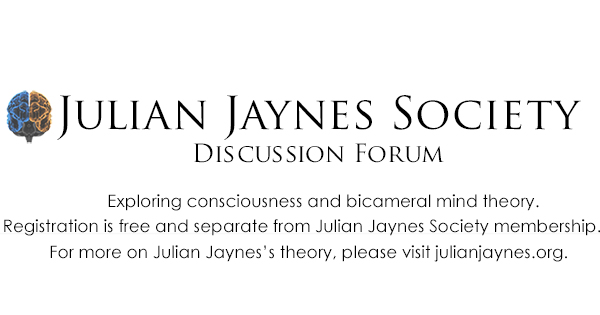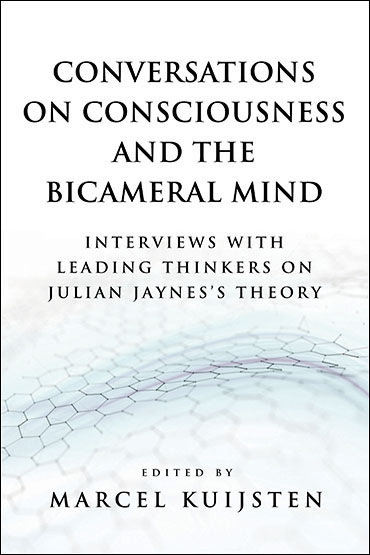Up until page 144, I'm been pretty impressed by Lachman's work. He manages to trace further back into the past than Jaynes, citing
"The dream culture of the Neanderthals : guardians of the ancient wisdom" by Stan Gooch. Lachman also provides a lucid definition of consciousness based on early thinkers like Rudolf Steiner that seems entirely compatibility with the approach taken by Jaynes. However, things start to go sideways on page 144. It seems as if Lachman did not fully understand the way Jaynes discussed hallucination. Lachman wrote, "Jaynes, unfortunately, was a convinced materialist, and he uses his experience as evidence for his belief that the gods of the ancients were merely similar hallucinations, which our ancestors only mistook for messages from divine beings." Is this accurate? I think not! My impression is that, for a bicameral human, wise guidance would be perceived as the voice of God. Only when we regard this ancient bicameral human from the modern point of view would we re-classify the experience as more like an auditory hallucination.
Gary Lachman's History of Consciousness
Re: Gary Lachman's History of Consciousness
Responding only to your quote (I'm not familiar with Lachman's book) he actually does accurately represent Jaynes's position on this.
When you say "wise guidance would be perceived as the voice of God," I would clarify that the idea of one "God" would be associated with after the bicameral period. Once the voices fell silent, the gods slowly blended and merged, and reformers such as Jesus promoted the conscious-era idea of "one true God."
Bicameral people would perceive their voices as -- depending on the culture -- chiefs, kings, personal gods, or dead ancestors, but the voices were coming from their right hemisphere.
Jaynes wanted to keep the focus on his ideas about consciousness, and he encouraged people to view this aspect of his theory through the lens of their own worldview. When it came to his own views, however, he did not believe in actual gods, spirits, etc. as being the source of the hallucinations. All of the evidence suggests that the source of hallucinations are an individual's own right hemisphere.
More on this here: https://www.julianjaynes.org/blog/myths ... s-of-gods/
When you say "wise guidance would be perceived as the voice of God," I would clarify that the idea of one "God" would be associated with after the bicameral period. Once the voices fell silent, the gods slowly blended and merged, and reformers such as Jesus promoted the conscious-era idea of "one true God."
Bicameral people would perceive their voices as -- depending on the culture -- chiefs, kings, personal gods, or dead ancestors, but the voices were coming from their right hemisphere.
Jaynes wanted to keep the focus on his ideas about consciousness, and he encouraged people to view this aspect of his theory through the lens of their own worldview. When it came to his own views, however, he did not believe in actual gods, spirits, etc. as being the source of the hallucinations. All of the evidence suggests that the source of hallucinations are an individual's own right hemisphere.
More on this here: https://www.julianjaynes.org/blog/myths ... s-of-gods/


